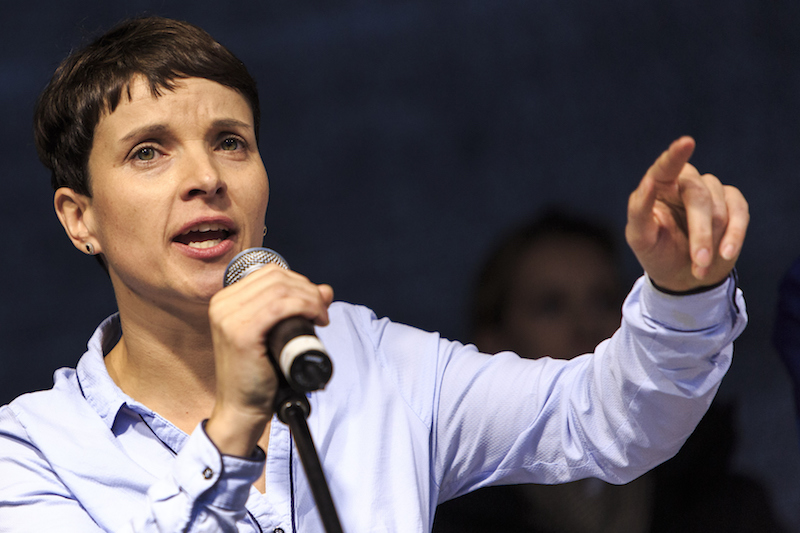
Prominent cultural figures across Germany have warned that the success of Germany’s right-wing populist AfD party in regional elections over the weekend could threaten artistic freedom in the country.
The party, which brands itself as an “alternative for Germany,” made significant gains in the German states of Rhineland Palatinate and Baden-Württemberg, and even won over 20 percent of the vote in Saxony-Anhalt, the German weekly magazine, Spiegel reported.
The electoral result has been interpreted as a protest vote against Angela Merkel’s open-door refugee policy that has seen Germany take in over 1 million asylum seekers fleeing war and poverty in the Middle East and North Africa.
The AfD made strong gains in regional elections based on its anti-immigration policies.
Photo: Wikimedia Commons
However, cultural figures are worried about the party’s electoral manifesto which sets out the “maintenance of German culture.” According to the AfD, museums, orchestras, and theaters have a “duty” to promote a “positive image of the homeland.” Theaters should “stage classic German plays and present them so that they encourage identification with our country.”
Aside from the nationalist rhetoric that bears a disturbing similarity to Germany’s dark past, commentators are concerned about a cultural policy that would substantially intervene with Germany’s constitutional right to freedom of expression.
After the AfD’s electoral success, the president of Berlin’s Academy of Arts, Jeanine Meerapfel, told the German daily Süddeutsche Zeitung, “This right-wing populist party should be monitored by the intelligence service.”
The AfD’s success his based on a protest vote against Merkel’s CDU and its open-door refugee policy.
Photo: Wikimedia Commons
Meerapfel explained that Germany’s history obliges it to take in refugees fleeing war and destruction. “It is insidious of the AfD to trivialize this obligation and convince people that our prosperity is under threat,” she said.
On the other hand, the prominent theatrical producer Jossi Wieler called for acceptance of the voters’ will. “The AfD has been democratically elected to the Parliament,” the Swiss director of the Stuttgart State Opera emphasized.
The result means that the party has gained significant clout at the regional level and now has the second highest number of representatives in the state parliament of Saxony-Anhalt. Having gained serious decision-making power, it is now up to the party to demonstrate that it understands the concept of democracy and respects Germany’s constitution, Wieler said.